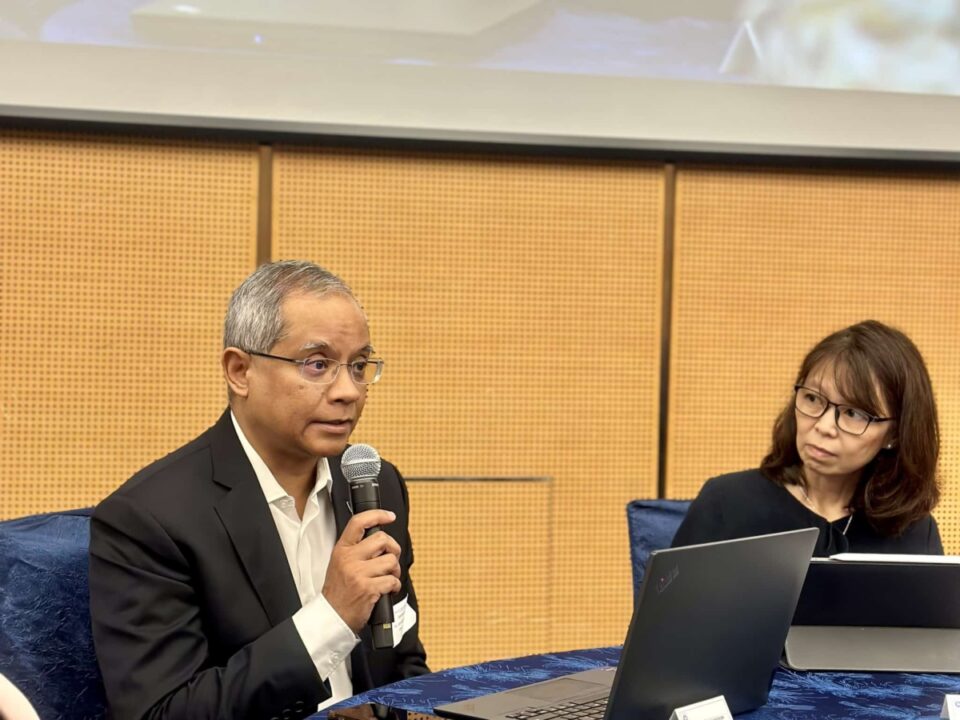KUALA LUMPUR, Aug 15 — The capital market can do more to finance businesses’ transition towards more sustainable practices, by broadening its instrument array to support them in incorporating environmental, social and corporate governance (ESG) elements, said the Securities Commission (SC).
SC managing director Kamarudin Hashim said Prime Minister Datuk Seri Anwar Ibrahim urged the banking system and capital market to act quickly to meet businesses’ financing needs and internationalising local small and medium enterprises (SMEs).
“The recent launch of the National Energy Transition Roadmap (NETR) … will undoubtedly require the capital market to respond accordingly; investment and funding solutions are expected to be immense,” he said.
Speaking at the International ESG Conference here today, Kamarudin said local green and social projects are largely funded through bank loans and bonds or sukuk, including those issued under the Sustainable and Responsible Investment (SRI) Sukuk Framework and Asean Green Bond Standards.
But in practice, not many SMEs are able to raise money with these instruments, and the use of alternative channels or private markets may be required.
“Alternative fundraising platforms such as equity crowdfunding (ECF) and peer-to-peer (P2P) financing platforms have allowed SMEs access to traditionally untapped pools of investors via cheaper, faster, and more convenient delivery channels.
“ECF and P2P can also be used to attract more investors to finance micro SMEs (MSMEs), as targeted in the Madani Economy framework,” he said.
Since their inception, the number of ECF and P2P financing moves has increased, with a growing number of MSMEs turning to digital platforms to secure capital.
As of June this year, ECF and P2P financing facilitated 9,415 MSMEs’ fundraising of more than RM5.4 billion.
“Over the years, we have seen MSMEs involved in green business successfully raise funds via ECF platforms,” he said.
Kamarudin said under the Joint Committee on Climate Change (JC3), several green pilot projects and several capital market initiatives are underway to expand sustainable and transition finance.
He added that the Greening Value Chain programme was launched last year to assist SMEs in activating impactful, long-term green changes in their processes.
“Although SMEs may generally not be subject to mandatory sustainability reporting, many will be affected indirectly via participation in value chains of large companies, which have to report on the sustainability performance of their entire value chain, and through financial institutions that have to report on the environmental performance of their financed portfolios,” he said.
To provide guidance for SMEs in making the relevant information available, Capital Markets Malaysia (CMM) has also published a Simplified ESG Disclosure Guide (SEDG) for SMEs for public consultation.
The SEDG aims to support SMEs in their adoption and reporting of sustainable procedures by providing guidance on the data requirements of their journey.
The SEDG also aims to provide SMEs with a simplified and standardised set of ESG disclosures that align with selected global and local frameworks.
“The SC welcomes the public’s feedback on the SEDG via the link on CMM’s website during the public consultation period, which will end on August 25, 2023,” he said.
Kamarudin, who is also co-chair of JC3, said an Alliance Bank Malaysia Bhd (in collaboration with UN Global Compact Network Malaysia and Brunei and SME Corp) report showed 60 per cent of SMEs believe strengthening ESG practices can increase business opportunities and create long-term value.
However, only 28 per cent of SMEs have adopted ESG elements in their businesses.
He said much more needs to be done to create awareness as businesses, especially SMEs, are facing growing pressure to measure and manage their ESG risks.
“Being integral parts of the supply chains, there is a growing demand for SMEs to demonstrate greater environmental stewardship and social responsibility from both customers and suppliers, particularly those seeking to secure contracts with large companies.
“The business case for sustainable operations is stronger than ever and will become even more intense over time,” he said.
As SMEs form the majority of businesses in the nation, their collective action hold immense potential to shape economic trajectories and contribute to job creation and overall socioeconomic well-being.
“How do we support SMEs? The cost of inaction is extremely high as large companies race against the clock to achieve their net-zero carbon ambitions.
“Suppliers that do not support their emissions reduction target risk being replaced by those able to aid their transition,” he said.
Kamarudin said some companies in Malaysia have come under greater scrutiny by global investors over human rights issues, which has led to some being cut from the international supply chain.
— Bernama





